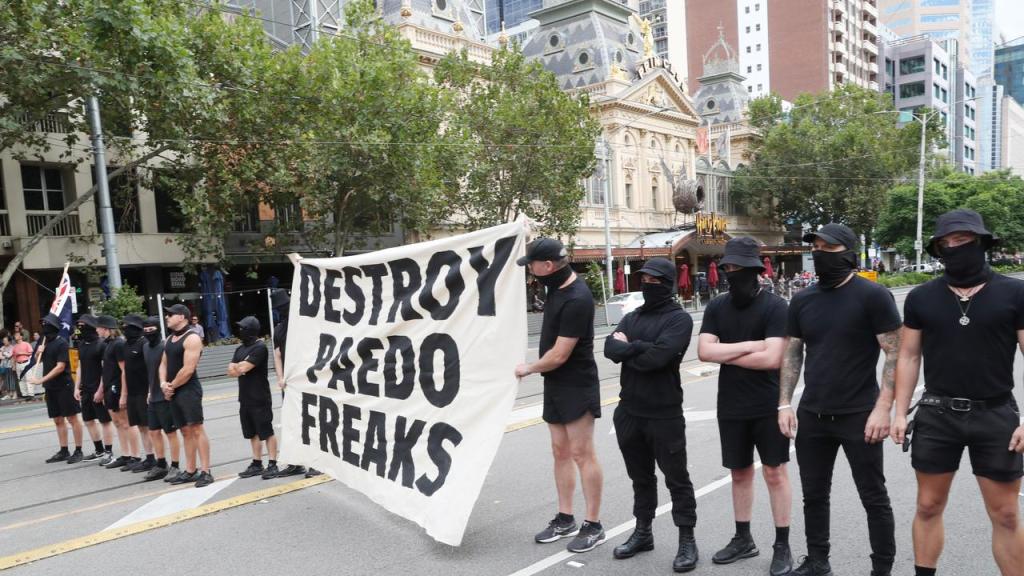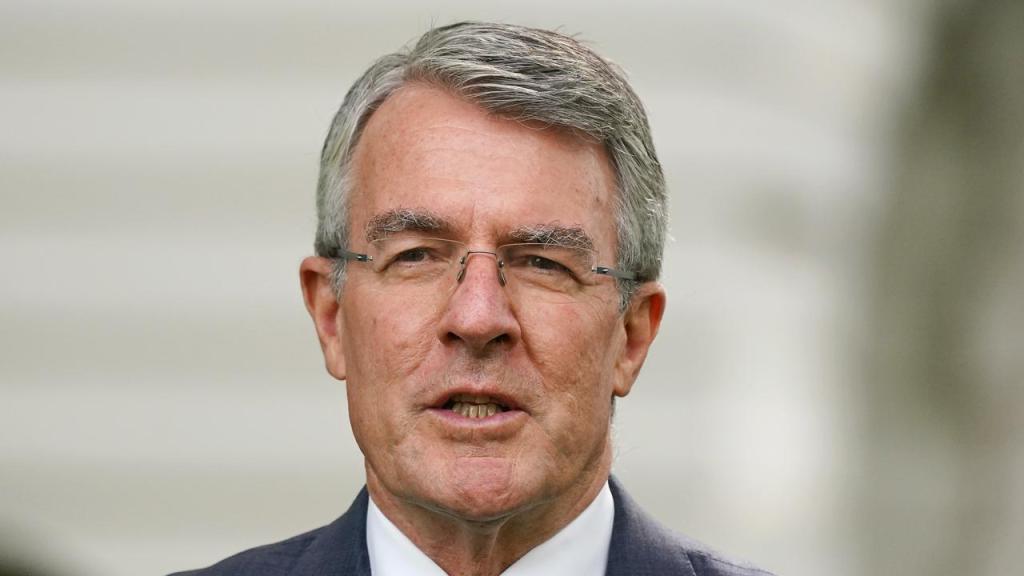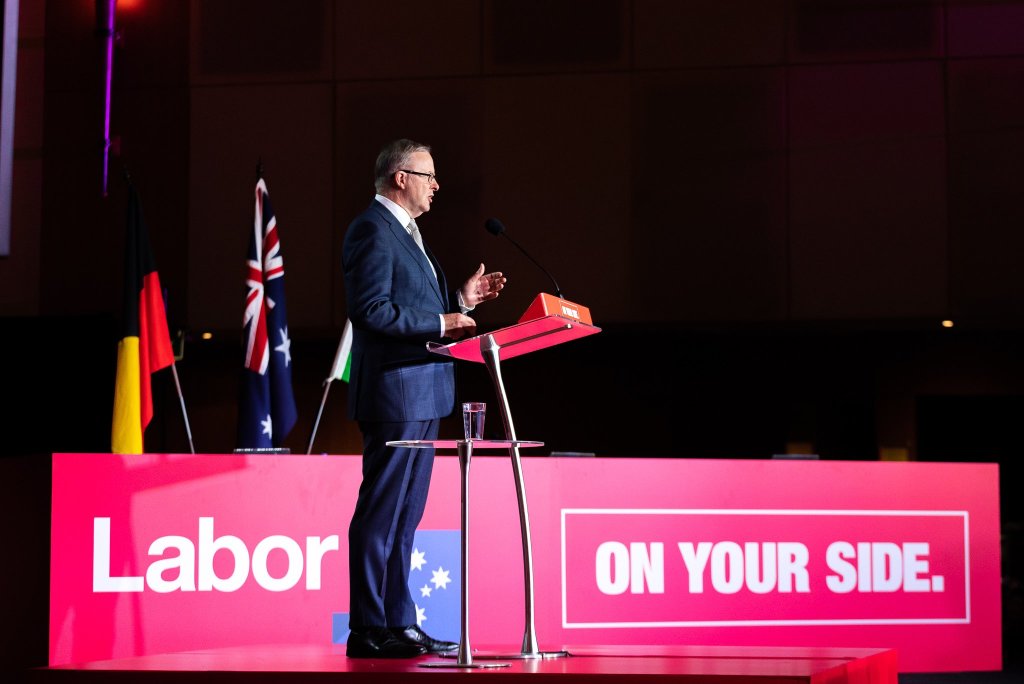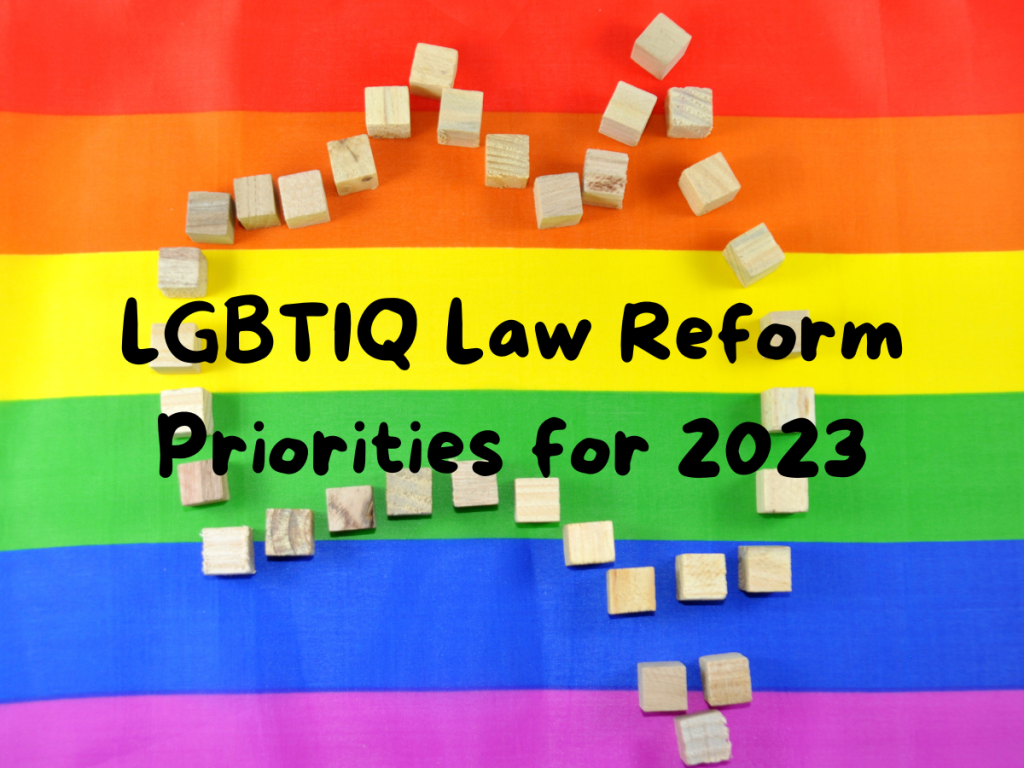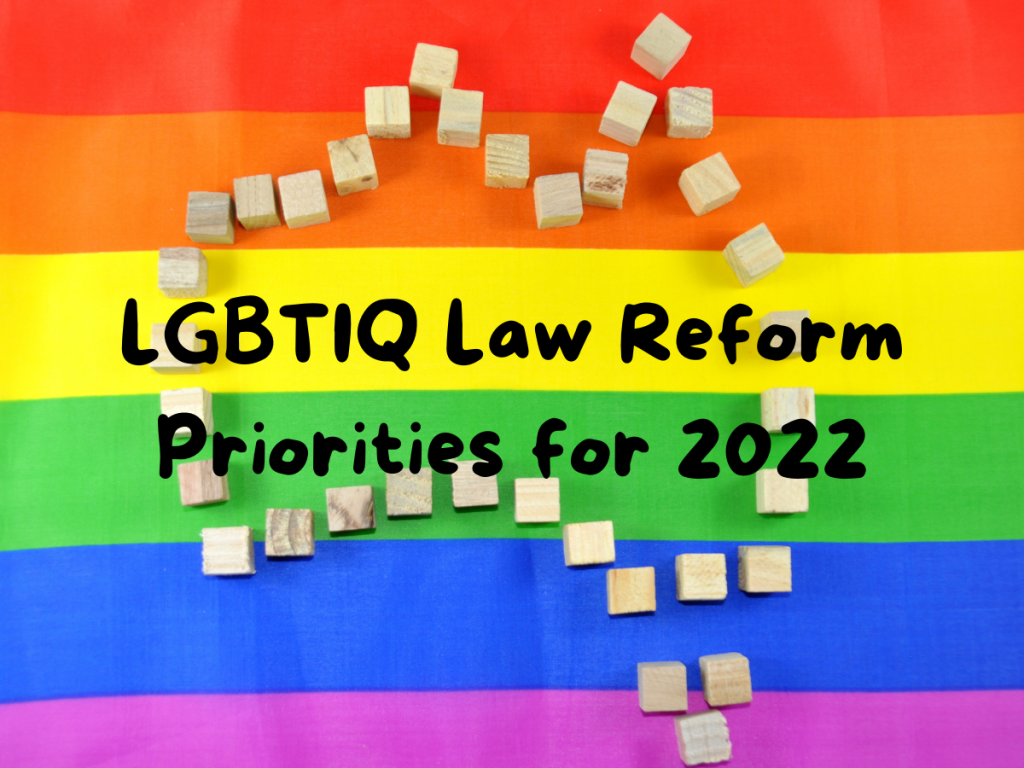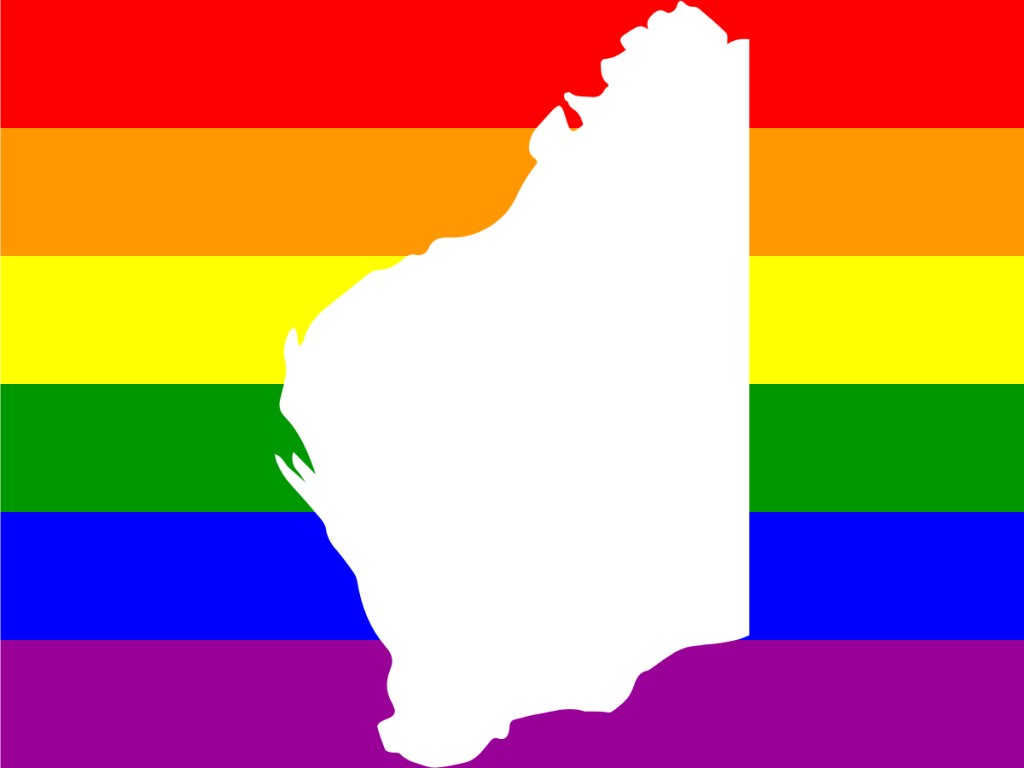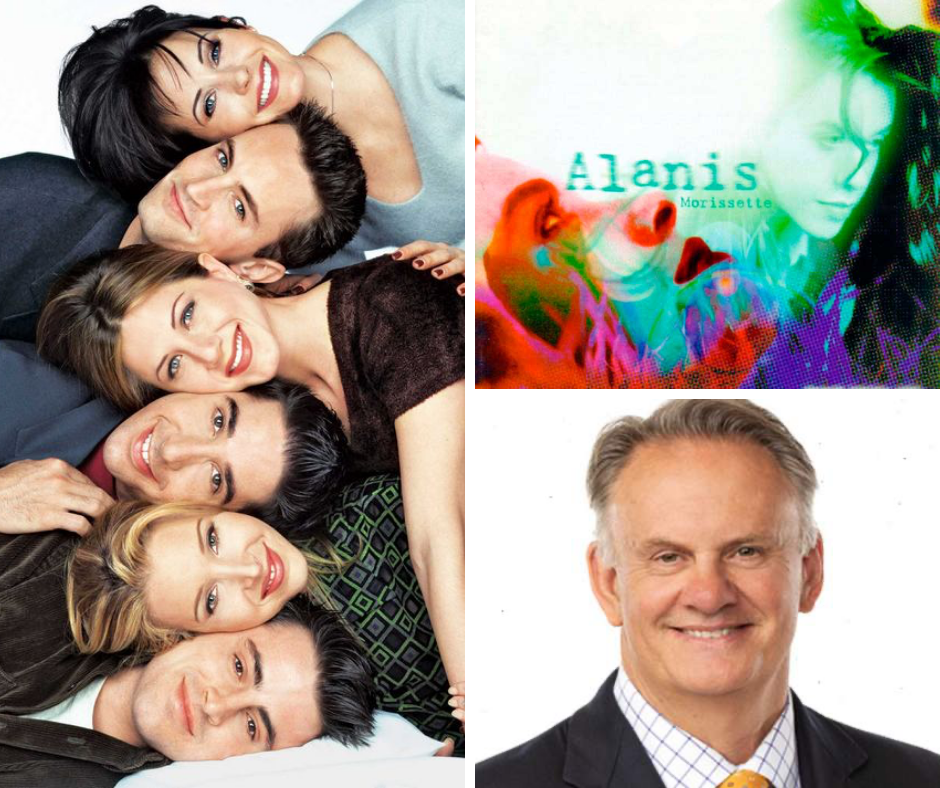On April 16 2024, I was invited to give the keynote address to launch Issue 47(1) of the UNSW Law Journal.
I was asked to talk about the Issue’s theme – ‘Decoding Life, Freedoms and Governance’ – with reference to at least some of the Issue’s articles (which are open-source, and can be found here), as well as my background as a long-term LGBTIQ advocate and professional experience in public policy.
The following is what I came up with (the two sections in square brackets were omitted on the night to keep to time, but are included here for completeness). Thanks for reading, I hope you find it interesting.
‘Decoding Life, Freedoms and Governance’
Thank you for that generous introduction. And of course for the invitation to speak here tonight.
Thank you also for the broad theme of Issue 47(1) to address in my remarks – ‘Decoding Life, Freedoms and Governance’ – which took me several days to ‘decode’.
I must confess I don’t feel particularly qualified to talk in detail on the topic of ‘decoding life’ – which is something most people do in consultation with their therapist.
I do, however, have plenty to say on the twin, and intertwining, topics of ‘decoding freedoms’ and ‘decoding governance’, at least partly based on my lived experience.
That’s because, as a 45-year-old gay man, it has been impossible to avoid thinking about the meaning of freedom – of what I have been free to do, or not do, or protected from, or not, at different stages of my life. And what others, including religious organisations, have been legally free to do to me.
Or to deny the role of governance, and governments – state and federal – in determining the extent of those ‘freedoms’, far-too-often without consultation with or even consideration of those most affected by their decisions.
Indeed, some of the key events in my life overlap with milestones in the history of LGBTIQ rights in Australia.
I was born in July 1978, just weeks after NSW Police arrested 53 people for participating in the first Sydney Gay Mardi Gras parade – an indication of how unwelcoming both the law, and its enforcement, were for LGBTIQ people here.
Although I grew up in rural Joh Bjelke-Petersen-era Queensland, which was undoubtedly worse.
Queensland did not decriminalise male homosexuality between adults until January 1991 – but even then it introduced a differing age of consent for anal intercourse (18, compared to 16 for other sexual acts), a discrepancy that was not abolished until 2016, and with charges and convictions arising because of this inequality still not included in their historical homosexual conviction expungement scheme today.
January 1991 was also personally significant for a couple of reasons. Just one week after decriminalisation, I found myself travelling 800 kilometres from the family farm to a religious boarding school in Brisbane. Then, on my first day there, I found I was same-gender attracted too.
Audience members will be unsurprised to learn religious schools were lawfully permitted to discriminate against LGBTQ students (and teachers) in Queensland at that time. Loopholes my school took full advantage of over the following five years.
While I will spare you the details tonight, it would be an understatement to describe growing up gay at a religious boarding school which enjoyed special privileges to be prejudiced, as horrific. [You can read more about my experiences, here].
Fast forward to 2008, and to another coincidence. I was employed as a ministerial adviser to the Rudd Labor Government. At the same time as I met, and began my first de facto relationship with, the man who is still my partner today, I was provided internal on the details of Commonwealth same-gender de facto relationship recognition.
Some younger members of the crowd may not be aware this recognition did not exist before 1 July 2009.
Then, in January 2010, my partner Steve and I got engaged – meaning I would spend the remainder of my time working for a Government which did not support the legal equality of my own relationship.
Despite departing Canberra in mid-2012, I continued to advocate for the introduction of Commonwealth anti-discrimination protections for LGBTIQ people, something that was finally achieved in June 2013 – just 10 years ago, but almost four decades after race discrimination was prohibited federally, and more than three decades after homosexual discrimination protections were introduced in NSW (something we will return to later).
The subsequent four years were predictably dominated by the subject of marriage equality – not only campaigning for it to be passed, but also debating the manner of its passage, from conscience votes through to the push for the ALP to hold a binding vote.
And from successful LGBTIQ community efforts to stop the Turnbull Coalition Government’s plebiscite, to failed attempts to prevent their postal survey – in another coincidence, I started at the Public Interest Advocacy Centre just a couple of months before we helped one of the unsuccessful High Court challenges to block what may have technically been a statistical survey but was also an anti-democratic anomaly.
I note this challenge fell just prior to the relevant time period for the article ‘How does the High Court interpret the Constitution? A Qualitative Analysis between 2019-21’ – it would have been interesting to see how Tan, Paige, Hrambanis and Green characterised that Wilkie decision.
In any event, thank you for indulging me in sharing a little of my back-story. Which I think reinforces that to be a gay man – or any member of the LGBTIQ community – in the final two decades of the 20thcentury, and the first few of the 21st, is to have been engaged in a constant state of contestation of our legal rights.
Our lives have been made inherently political, with participation in the political process rendered essential – even if ‘the State’ has frequently been our oppressor, or at least acted on the oppressor’s side.
That background also helps to explain why I am an LGBTIQ advocate today.
Why I chose ‘sexuality-related anti-discrimination law in practice’ as the topic of my law honours paper at ANU.
Why I’ve spent much of the past two decades volunteering for a range of LGBTIQ community organisations, including both the Victorian, and NSW, Gay & Lesbian Rights Lobbies.
And why I have ended up at PIAC, where over the past seven years I have been fortunate enough to work not just on marriage equality, but also on advocacy against the Morrison Government’s Religious Discrimination Bills, which presented a grave threat to the rights of LGBTQ people (as well as women, people with disability and even people of minority faiths).
Above all, I’ve focused on efforts to secure anti-discrimination protections for LGBTQ students and teachers in religious schools, under both state and federal law. Which is obviously a full-circle moment given where I started!
I intend to use the remainder of this speech to talk about what LGBTIQ rights look like in NSW today, across four key issues: conversion practices; birth certificates; medical interventions on intersex children; and anti-discrimination protections.
Now, had I given this address a month ago, I would have been able to make the pithy observation that we live in the worst jurisdiction in Australia for LGBTIQ laws.
Instead, following passage of the Conversion Practices Ban Act in late March, we’ve moved all the way up to equal worst, with Western Australia (actually, that’s perhaps uncharitable – if we’re being generous, we might even be able to say we are now second-worst… just).
From an LGBTIQ advocate’s perspective, this legislation is both welcome and long overdue.
It will legally prohibit conversion practices, defined in section 3 as:
‘a practice, treatment or sustained effort that is (a) directed to an individual on the basis of the individual’s sexual orientation or gender identity, and (b) directed to changing or suppressing the individual’s sexual orientation or gender identity.’
This is needed because, as described in the opening article in issue 47(1) – Martin Clark and Brendan Gogarty’s excellent ‘Searching the Reins and Hearts: Conversion Practices Reforms in Australia’:
Quote
‘[S]cientific and clinical evidence has consistently shown that there is no evidence that conversion practices are ‘effective’ in their capacity to effect a change or suppression of sexual orientation or gender identity. There is also consistent evidence that conversion practices carry clear risks of harmful effects on those subjected to them, including physical and psychological harms, such as increased suicidality, self-harm, post-traumatic stress disorders, anxiety and depression, feelings of alienation, loneliness and exclusion, sexual dysfunction, substance abuse, internalised homophobia and feelings of failure, and reluctance to seek medical treatment.’
Endquote
Disappointingly to Clark and Gogarty, who argue against a carceral approach, the new Act implements both a criminal offence, and civil complaints scheme, for conversion practices.
Although I must respectfully disagree with them – given the seriousness of the harms they outline, I would suggest criminal penalties for the worst examples are appropriate.
Either way, the passage of this law is a testament to the advocacy of conversion practices survivors like Anthony Venn-Brown, Chris Csabs and Nathan Despott, over many decades.
But I would not be honouring their work without also highlighting their primary criticism of the law as passed – that, unlike the ‘best practice’ scheme in Victoria, the NSW law does not provide a formal mechanism for third-party complaints to Anti-Discrimination NSW.
As it stands, the only complaints that can be made are from survivors directly, or via representative complaints with the consent of each of those survivors.
This framework not only reinforces one of the limitations of anti-discrimination law more broadly – that the onus for seeking redress falls on the people who have been mistreated.
It ignores the particular characteristics of conversion practices, where the people undergoing them appear to do so ‘voluntarily’ (despite what, as Martin and Gogarty note, is the ‘impossibility of genuine consent’ in these circumstances), and are therefore unlikely to bring, or consent to, complaints until after they have extricated themselves from them. If they first survive them.
The lack of third-party complaints is a major gap in this scheme that must be rectified.
The Act also includes a range of ‘carve-outs’, providing that activities like ‘clinically appropriate’ healthcare, ‘stating what relevant religious teachings are or what a religion says about a specific topic’, and ‘parents discussing matters relating to sexual orientation, gender identity, sexual activity or religion with their children’, do not constitute conversion practices.
Despite this, a number of conservative religious organisations campaigned against the law in its totality, alleging it constituted an attack on ‘religious freedom’.
I must, perhaps a little less respectfully this time, disagree with them too. There is no philosophical justification for the right to inflict serious psychological harm, on children and young people, in the (misused) name of religious freedom.
Even in the case of adults – where there is at least a possible argument for the freedom to engage in practices which may result in self-harm – I would submit there is a clear justification for government regulation.
This is because of what Clark and Gogarty describe as the role played by ‘conversion ideology’ as a precursor to ‘conversion practices’:
Quote
‘Survivor-advocates have consistently contended that ‘conversion ideology’ – the worldview that it is possible and necessary for LGBTQA+ people to change their sexual orientation and gender identity, and that being LGBTQA+ is due to trauma, spiritual brokenness, and can be fixed by prayer – is central to defining and understanding conversion practices’,
because
‘the inculcation of these beliefs in congregants is important for smoothing the path for them taking part in actual conversion practices.’
Endquote
In other words, perpetrators of conversion practices first convince healthy people to believe their sexual orientation or gender identity is somehow ‘sick’ (when it is not), before offering a ‘cure’ that actually causes serious psychological harm.
The law should not protect the ‘freedom’ to engage in this abuse.
Before I conclude on this subject, I feel compelled to express my condemnation of the role played by the Liberal/National Coalition during parliamentary consideration of this law.
And especially of their vote in favour of minor-party amendments to remove ‘gender identity’ from any protection under the Conversion Practices Ban Act.
In other words, the NSW Opposition voted for the continued legality of ‘practices, treatments or sustained efforts’ to stop trans people, and especially trans young people, from being trans.
This was a shameful act, and one I would strongly urge them to reconsider in relation to future LGBTIQ law reform – including on the next topic we will turn to.
That is birth certificate legislation, and in particular, the regulation of access by trans and gender diverse people to identity documents reflecting who they are. Sadly, the NSW Births, Deaths and Marriages Registration Act 1995 is unequivocally the worst such law in the nation.
We are the only jurisdiction which still requires people to undergo genital surgery before being able to update their birth certificates – surgery many trans people do not wish to undertake, and of those that do, many cannot afford, because of a lack of Medicare funding.
While we are one of only two jurisdictions, alongside Western Australia, with no legislative options for sex or gender markers beyond male or female: non-binary people cannot access state-issued ID stating they are, in fact, non-binary.
These laws aren’t just an insult to the human dignity of trans and gender diverse people. The requirement for surgery, which causes sterilisation, is a denial of reproductive freedom and therefore the right to found a family.
While the inability of many trans and gender diverse people to access birth certificates reflecting who they are at all, means they are confronted by the possibility of ‘outing’ in the growing range of contemporary scenarios where ID is mandated.
Fortunately, the Equalities Legislation Amendment (LGBTIQA+) Bill 2023, introduced by the Independent Member for Sydney Alex Greenwich and currently being considered by a Parliamentary Inquiry, would address these problems, and at least bring NSW law up to the standard of Victoria and Queensland.
Although even then, and this is my personal rather than professional view, it would fall short of the ‘best practice’ approach of Tasmania, which is the only Australian state or territory to adopt a true ‘self-identification’ model for trans and gender diverse people.
Instead, the NSW law – like Victoria and Queensland – would still require a trans person, in addition to their own statutory declaration, to submit:
‘a support statement by an adult who has known the applicant for at least 12 months stating that (i) the adult believes the person is making the application in good faith, and (ii) the adult supports the person making the application…’
Given identity, including the characteristic of gender identity, is an inherently personal attribute, I do not agree the recognition of someone’s gender should be dependent on whether another person ‘supports’ it.
Looked at from another perspective, I do not concede that my sexual orientation, as a gay man, should only be acknowledged if I am able to produce a statutory declaration from another person saying they ‘support’ it.
I am who I say I am, a fact generally accepted by others. Trans and gender diverse people deserve to enjoy exactly the same respect.
Nevertheless, we (being PIAC), support the Equality Bill as a significant step forward along the long journey to LGBTIQ, and especially trans, equality. We urge both the NSW Government, and Opposition, to support it.
Turning to the third topic I flagged earlier, and in which NSW law is manifestly deficient: medical interventions on intersex children.
For audience members new to this subject, intersex people have innate sex characteristics that do not fit medical norms for female or male bodies. It is estimated somewhere up to 1.7% of children are born with these variations of sex characteristics.
Tragically, the medical system’s response to many intersex children is to perform so-called ‘normalising’ surgeries on them.
These interventions are frequently not clinically necessary for the child’s health, but instead performed for non-therapeutic or ‘psycho-social’ reasons, including to assuage the disappointment of parents who expected their child’s body to conform to societal norms, or to ‘assist’ the child to fulfil gendered stereotypes in the future.
For those curious about what that means in practice, I suggest reading the 2016 Family Court case of Re: Carla, which ruled that a family can consent to the sterilisation of their 5-year-old child without court approval, without clear medical necessity and at least partly motivated by gendered expectations, including attitudes to that young child’s potential future sexuality. It was then, and remains today, a genuinely heart-breaking decision.
These unnecessary surgeries are obviously done without the consent of the person affected by them, who should be free to agree, or not agree, to them when they have at least reached Gillick competency and understand what is involved.
In my view, medical interventions on intersex children, which are a fundamental denial of bodily autonomy, are one of the gravest human rights violations happening in Australia today – not just in relation to the LGBTIQ community, but across society.
There have been multiple public inquiries recommending these practices be ended, including the 2013 Senate ‘Inquiry into the involuntary or coerced sterilisation of intersex people in Australia’, and the Australian Human Rights Commission’s 2021 report ‘Ensuring health and bodily integrity: towards a human rights approach for people born with variations in sex characteristics.’
Sadly, however, only one Australian jurisdiction has so far passed legislation to prohibit these surgeries: the ACT. While I understand Victoria may be close to finalising its own laws.
In contrast, there is no NSW Government commitment to introducing equivalent laws here, nor was it included in Mr Greenwich’s Equality Bill.
This is a gross failure of governments, in NSW and elsewhere, to protect the rights of the most vulnerable.
It is unsurprising I had this issue front-of-mind while reading the article ‘Out-of-Home Care, Contact Orders and Infant Mental Health: Recognising a Unique Developmental Stage in Law, Policy and Practice’ by Rachel Gregory-Wilson, Elizabeth Handsley, Liesel Spencer and Toby Raeburn, including their observation that:
Quote
‘Infancy is, therefore, a special and critically important stage of human development, and infants as a class of persons require special recognition and safeguards, including under child protection law. Infants are not little children, just as children are not little adults; they need different and unique exposures in their environments to facilitate optimum physical growth and emotional development’.
Endquote
While they made this observation in a different context, I think it reasonable to apply these principles to intersex children, who deserve legislative safeguards for their bodily autonomy, and who should be allowed to grow and develop free from unnecessary medical interventions to try to change their bodies into what society expects them to be.
Let intersex kids be free from surgeries performed according to the wants of others, rather than their own needs – and only performed following their own timeframes, if they so consent.
[One final point before moving on – while the circumstances, and associated rights, of trans young people, and intersex children, are quite distinct, it is depressing to observe the intellectual inconsistency of those who oppose the rights of both.
For example, Liberal Senator Alex Antic’s Childhood Gender Transition Prohibition Bill 2023, currently before Commonwealth Parliament, seeks to ban access by trans and gender diverse young people to gender-affirming health care, even puberty blockers and even where they are Gillick competent.
While simultaneously providing a specific carve-out to allow non-consenting medical interventions to continue to be performed on intersex children.
According to Antic, there should be no gender-affirming health care for trans kids who want it and who are able to consent. But no protection for intersex kids from harmful surgeries that are not clinically necessary and where they are in no position to consent.
Trans and intersex kids lose either way].
Turning to the final topic of my speech – anti-discrimination coverage – once again NSW has the worst laws in the country. Nowhere is this more apparent than in the protections the Anti-Discrimination Act 1977 offers, or more accurately fails to offer, LGBTIQ people.
It wasn’t always this way. In fact, NSW was the first Australian jurisdiction to protect lesbians and gay men against discrimination, in late 1982. Incidentally, this was before the decriminalisation of homosexuality in mid-1984, meaning there was an 18-month period during which gay men were criminals but legally could not be denied housing.
But the lack of subsequent reform, especially over the past 28 years, has allowed this law to atrophy.
We are now the only place nation-wide which does not protect bisexual people against discrimination. And one of two, with Western Australia, that does not protect non-binary and intersex people.
The provisions allowing discrimination by religious schools are the broadest in Australia too.
Indeed, they are so broad they apply to all ‘private educational authorities’, not just religious schools. And they offer complete or ‘blanket’ privileges to discriminate – unlike all other jurisdictions, there is no test which NSW schools must satisfy before being permitted to discriminate. The Act simply does not apply to them.
These serious flaws are just some of the reasons PIAC has made comprehensive anti-discrimination law reform a priority, including through our August 2021 report ‘Leader to Laggard: The case for modernising the NSW Anti-Discrimination Act’.
We were obviously pleased NSW Labor listened to that report and made comprehensive review of the ADA an election commitment. And we have welcomed, participated in and will continue to participate in the current NSW Law Reform Commission inquiry into this broken and outdated law.
But, as people discovered at the start of the century – when the Law Reform Commission completed its last review of this legislation, with its report then gathering dust rather than being implemented – an inquiry is meaningless if nothing subsequently changes.
We will continue to advocate to the Minns Labor Government until we finally have an Anti-Discrimination Act fit for the 21st century, one offering genuine protection against discrimination for all communities, including LGBTIQ people.
Speaking of Law Reform Commission reports at risk of gathering dust, I cannot discuss anti-discrimination law reform tonight without also addressing the current situation federally.
[Before we get into those details, however, and on indulgence, I might take this opportunity to vent the frustrations of an advocate for protecting LGBTQ students in religious schools who regularly comes up against the intellectually disingenuous, and sometimes downright dishonest, arguments of those opposed to reform.
I speak of some conservative religious schools, and their representative bodies, who simultaneously claim that religious schools do not discriminate against lesbian, gay, bisexual and trans students – but that under no circumstances can their legal privileges to do so ever be repealed.
They can never satisfactorily answer why that should be the case.
Until you realise it is because these religious schools do in fact discriminate against queer kids – they just call it something else.
Which is how you end up with the anti-LGBTQ, and especially anti-trans, student enrolment contract, proposed by Citipointe Christian College in Brisbane in 2022.
Or the situation in late 2023, when a Sydney Catholic school rejected a female student’s request to bring their same-gender partner to their formal (with it later becoming apparent this was policy across that entire Catholic school network).
Indeed, Catholic schools seem to be experts in this special kind of hypocrisy – claiming not to discriminate, while doing exactly that – as can be seen in the 2023 Sydney Catholic Schools’ ‘Gender Dysphoria Policy’ – a 6-page guide that only ever refers to students with ‘gender dysphoria’, never once acknowledging some students are trans.
I would submit it is fundamentally discriminatory to refuse to acknowledge who a trans child is.
It is almost refreshing to witness the comparative honesty of an organisation like the Presbyterian Church of Australia, who have publicly stated gay students cannot hold leadership positions within their schools because they are unable to ‘model Christian living’.
Almost – until you remember they are unashamedly, and unrepentantly, saying they will actively mistreat young people solely because of an intrinsic attribute.
That is nothing more than bullying, pure and simple. There should be no place for it in places of learning.
Anyway, thanks again for your forbearance.]
As audience members are aware, this issue has been ongoing for several years – since late 2018, when both the then-Morrison Government, and then-Shorten Opposition, promised to protect LGBTQ students. With Labor going further in promising to protect LGBTQ teachers too.
Albanese took these commitments to the May 2022 election, with Attorney-General Mark Dreyfus referring the question of how they should be implemented to the Australian Law Reform Commission in November that year.
The ALRC handed its report to Dreyfus in December. They proposed straight-forward amendments, to the Sex Discrimination Act 1984, and Fair Work Act 2009, to reflect the following two principles:
- That LGBTQ young people should enjoy the freedom to learn and to grow, without fear of discrimination on the basis of who they are, and
- That LGBTQ teachers should be employed on the basis of their skills and experience, rather than their sexual orientation and gender identity.
We hoped the privileges for prejudice enjoyed by religious schools might finally end.
But, when the Government released the ALRC report in March, those hopes were immediately dashed – because Prime Minister Albanese indicated no legislation would even be introduced to Parliament without bipartisan support from the now-Dutton Opposition. Effectively abdicating responsibility for his own election promises to the parties he had defeated.
Remember, not only did the Coalition do nothing to implement Morrison’s 2018 promise to protect LGBTQ kids, they withdrew their own Religious Discrimination Bills from Senate consideration because of amendments to prohibit discrimination against trans students.
Just today, Shadow Attorney-General Michaelia Cash has written an opinion piece not just opposing reforms to the Sex Discrimination Act, but also backing calls by religious schools for ‘positive rights’ to discriminate under federal law, with the consequence of overriding protections for LGBTQ teachers, and even students, in states and territories that have progressive laws.
It was abundantly clear to observers when Mr Albanese announced his ‘bipartisanship’ push, and is undeniable now, there are only two possible outcomes:
- There is no agreement, and therefore no protection for LGBTQ students and teachers
- There is agreement – but any Bill supported by the Coalition will not offer genuine protection for LGBTQ students and teachers.
Either way, LGBTQ Australians lose again.
It is hard not to share the sentiments, if not the choice of language, of religious school discrimination survivor James Elliot-Watson, when he described the impasse thus:
Quote
‘MPs are paid in excess of $200,000 so everybody should do their fucking job.
And I think that’s especially true for the leader of the government and my Prime Minister.
The purpose of parliament is to enact laws that ensure the safety, integrity and protection of… Australian citizens and that’s what this is about.
It needs to protect vulnerable children from legal discrimination practices that religious institutions are allowed to engage by chang[ing] the law.
Let’s get it done.’
Endquote
If Albanese doesn’t ‘get it done’ this term, it will be no less a failure of governance, and governments, to realise the basic freedoms of LGBTIQ Australians as the failure to achieve marriage equality over many years.
Indeed, there are many similarities between these two issues.
Both were reforms supported by a large majority of the Australian community.
Both could be delivered with legislative ease, following well-established precedents (in the case of marriage equality, overseas examples; in anti-discrimination law, the successful operation of state and territory laws).
Both issues had politicians who claimed to support change, but were recalcitrant in delivering it.
Significantly, both marriage equality and anti-discrimination reform have seen Prime Ministers impose artificial barriers hindering change – in the former, an unnecessary plebiscite-cum-postal survey; in the latter, the unnecessary need for bipartisan support.
With the result that on both issues LGBTIQ Australians are made to wait far too long for positive change.
Which is the most important point. It is LGBTIQ Australians who suffer real-world harm because of political intransigence.
In marriage equality, we remember Peter ‘Bon’ Bonsall-Boone and Peter De Waal, who were together for 50 years, and, in the face of Bon’s declining health, desperately pleaded for Malcolm Turnbull to introduce marriage equality so they could finally wed.
Bon died 6 months before it was passed.
In relation to LGBTQ students, I think about the person whose story we will never get to hear – because the mistreatment they experience causes them to prematurely end their life.
I say that with confidence – because it was nearly my story.
The horrific discrimination I suffered at the hands of my religious boarding school, which I mentioned earlier, caused me to experience suicide ideation from the second term of year 8, through the final term of Year 12. And beyond.
I am, in many respects, very lucky to still be here.
But I am also full of resolve. Because that is no way for a child to learn, or to grow up.
And so I can state with equal confidence that I, and PIAC, will continue to advocate until no child has to endure the same.
As I come to the end of tonight’s speech, I’m tempted to apologise for the ‘heaviness’ of some of the subjects I’ve spoken about, including the personal impacts of anti-LGBTIQ prejudice.
It is an ‘occupational hazard’ of being an advocate, and especially one who focuses on policy and law reform, to be constantly critical, to highlight where the law is deficient, and the terrible outcomes of those shortcomings.
I do not intend to convey the impression there has been no positive law reform in my lifetime (or since that very first Mardi Gras) – not just on conversion practices, but also decriminalisation, de facto and rainbow family rights, and in many other areas.
Nor is the plight of LGBTQ people in religious schools intractable. I am reliably informed my own boarding school is now welcoming of same-gender attracted and gender diverse students, a product of anti-discrimination protections for students that have existed in Queensland for twenty years.
But I do mean to impart the understanding that the struggle for the full realisation of LGBTIQ human rights and freedoms in Australia is far from over, and that we will never reach that end-point without the concerted efforts of the community, both LGBTIQ and non-LGBTIQ alike.
I welcome those present tonight as fellow travellers on the long journey ahead.
Congratulations on Issue 47(1) of the UNSW Law Journal to Jessie Liu, your editorial team and to all of the authors published. It is truly impressive in its breadth, and depth, of scholarship.
And thank you for listening to my remarks.
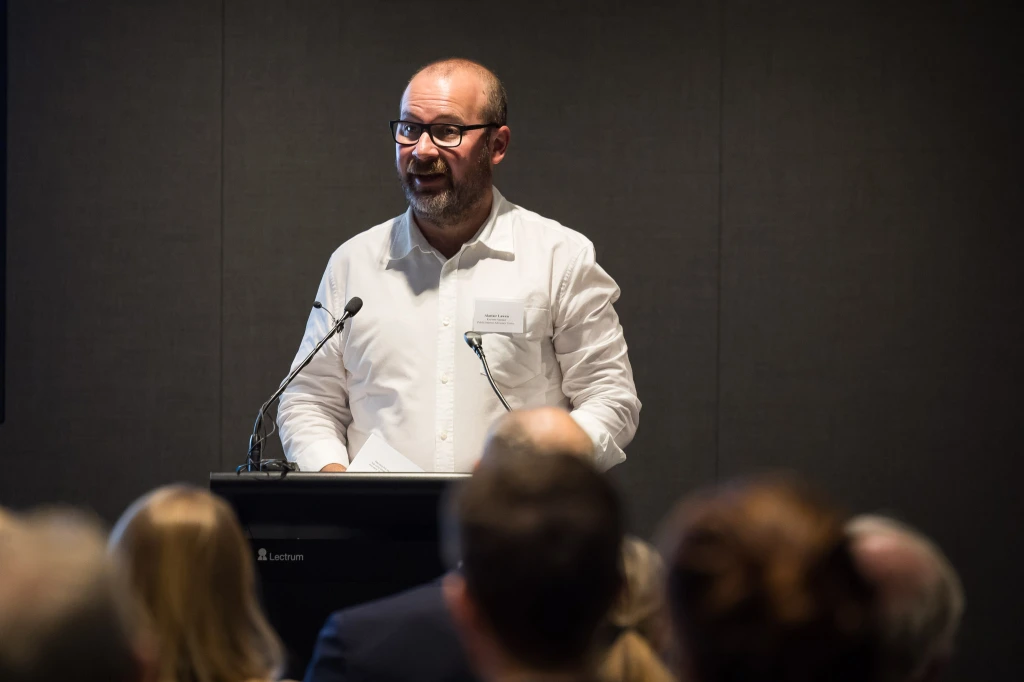
If you have appreciated reading this article, please consider subscribing to receive future posts, via the right-hand scroll bar on the desktop version of this blog or near the bottom of the page on mobile. You can also follow me on twitter @alawriedejesus

